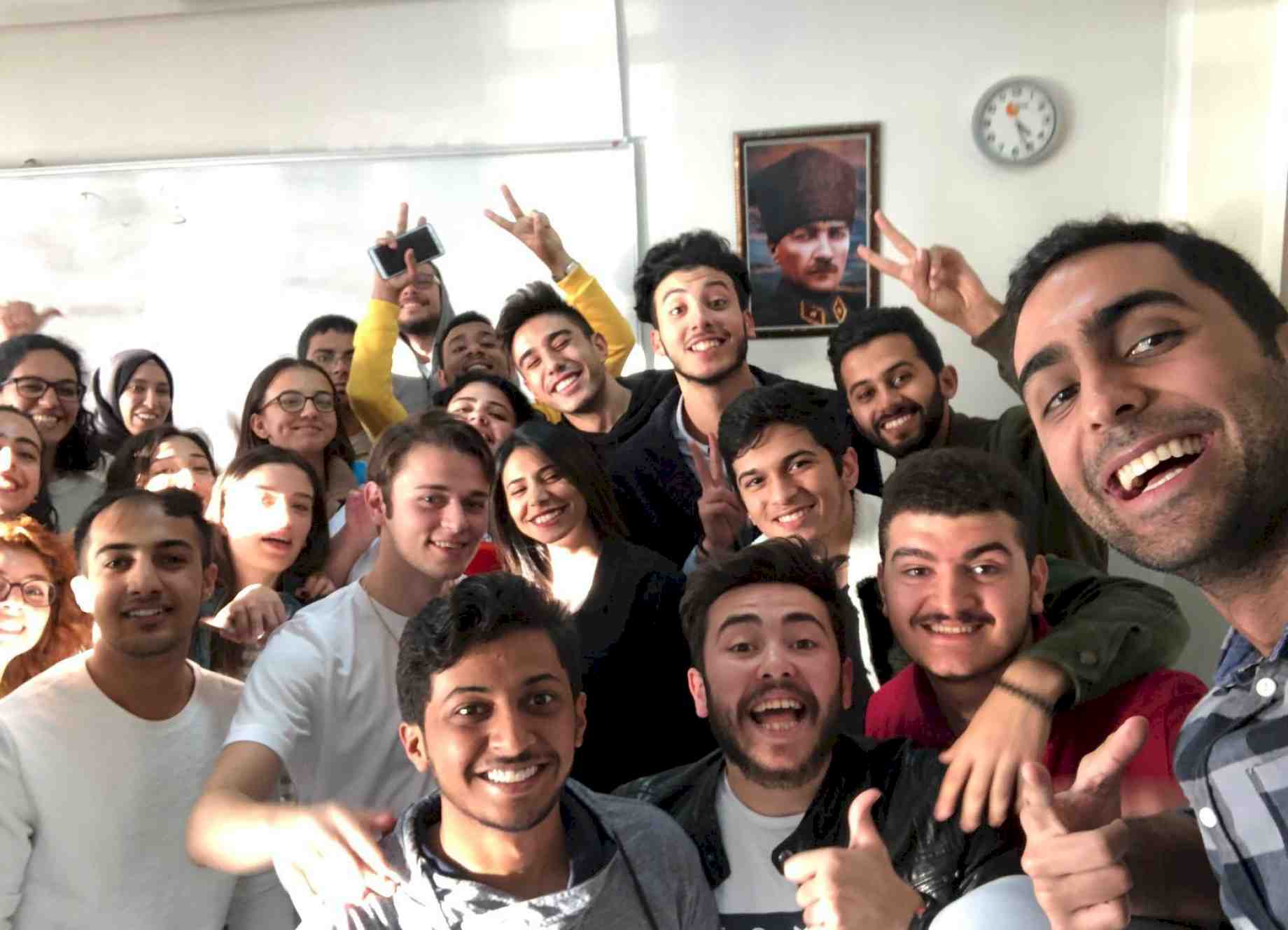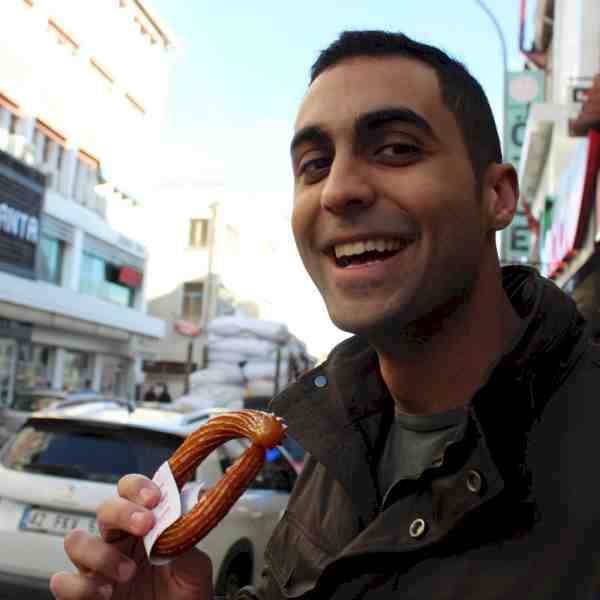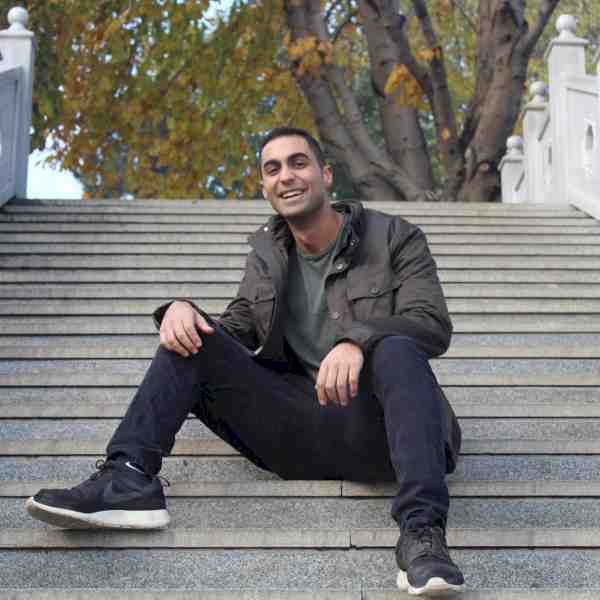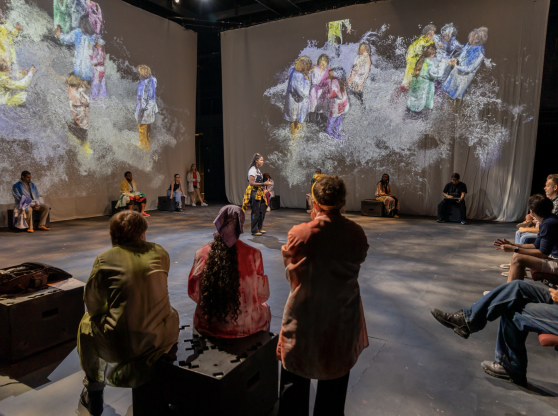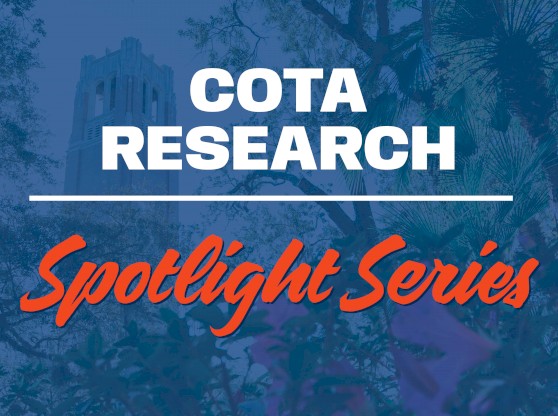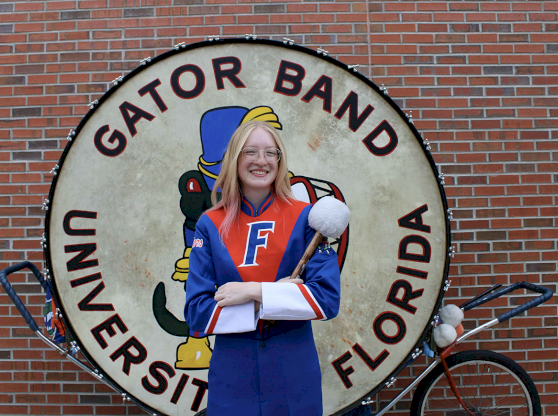A former actor of the Constans Theatre stage, Afsheen Misaghi (MFA Acting '19) can now be seen in a new role: teaching English to college students in Ankara, Turkey. After graduating from UF with stage credits like Caliban in Rough Magic and Florence in The Colored Museum, Misaghi was awarded a Fulbright Scholarship, the U.S. Government’s flagship international educational exchange and most prestigious grant program. Misaghi serves as an English Teaching Assistant as part of the student division of Fulbright, which is designed to build lasting connections between the people of the United States and those of other countries. We caught up with Misaghi to learn more about his unique opportunity.
Matt: Are there any connections or similarities between your work as an English teacher and your work as an actor?
Afsheen: In general, teaching is a really performative thing, there are aspects of standing in front of a classroom and teaching a class that are very similar to getting on a stage and being in front of an audience. You are still communicating ideas, you are still the person who is trying to share knowledge or a story. Theatre, for a really long time in our history, has been a form of education—a lot of us think of it more as entertainment—but it’s also a type of education, entertaining or not.
Matt: Have the opportunities provided to you through UF & SOTD, such as being a teaching assistant, helped prepare you for this opportunity?
Afsheen: Yeah absolutely! I was really lucky, I got three years of teaching experience at the University of Florida under my belt, whether it be as a teacher assistant or just having my own classroom. Just like with theatre, the more that you are onstage, the more you get comfortable, and the more you are in-front of the classroom, the more you are comfortable with it. I took an improvisation class my first semester at UF, and then later I studied it at Upright Citizens Brigade, both in LA and New York City.
Improvisation is like the key to teaching. At any moment, you have to be able to change your lesson plan, change your subject, change what you’re teaching so that you can have a successful lesson.
Matt: Why did you decide to pursue a service opportunity?
Afsheen: I thought it was a really unique opportunity. I still have full intentions of becoming a professional actor. But I thought it was a rare opportunity to live abroad and really immerse myself in a different culture. I’m not Turkish, so before I moved here I didn’t know anything about the people, the language, the culture, and very little about the food.
Matt: What about this particular aspect of teaching/research excites and motivates you?
Afsheen: It's a great opportunity for me to both share my experiences and knowledge of my culture but at the same time gain knowledge and information from different cultural experiences. Also, a lot of my personal research is about how race and entertainment intersect in America. Now that I’m living abroad, it’s actually about how ubiquitous American media is and how it affects the understanding of race outside the U.S. America is not a homogenous society like a lot of countries are, such as Turkey. The U.S. is incredibly diverse, but a lot of its media is homogenous. Seeing how it perpetuates and what others perceive America to be, compared to what I know the country to actually be as a person of color, I find super interesting.
Matt: Are you involved with any extracurriculars with your students while in Ankara?
Afsheen: Yeah for sure. I have a theatre club, which is awesome! I also do speaking clubs with my students, so we have one-on-one and group speaking clubs. I usually integrate theatre games into those because I think it’s just a really fun way to learn. It’s not the classic just sit down and lecture. I don’t know if that’s the best way to learn a language. But then also personally, I do a lot of extra-curricular activities. I do some painting. I take art classes. For the last 3 months, I’ve done Bachata dance classes.
Matt: Why Turkey?
Afsheen: My decision to pick Turkey is really rooted in the idea that Turkey has always been the country where the East meets West. As a child of immigrants from the Middle East and South Asia, that’s what kind of intrigued me in the first place about Turkey. I feel like my culture and my life is a little bit of East meets West too.
Matt: Have any of your perspectives changed from visiting a different culture and society?
Afsheen: My entire perspective on life as a human and artist has changed. I think that I have changed, not to quote Wicked but, “for good,” because it’s just really opened up my eyes to different people from different cultures, specifically the Turkish culture, and how they live, interact, love, create, teach, and just how they live their lives. I have an interesting perspective where I can observe them, but since I’m here for a long period of time, I can also participate in their culture.
Matt: What does your day-to-day life look like while in Turkey?
Afsheen: I wake up and then I commute to work via public transportation. I usually teach for 4-5 hours, and then I work in the Independent Learning Center for another 4-5 hours, which is where I do the speaking clubs and the one-on-one sessions, and then I usually commute back home. At home, I am a member of a gym, so I’ll often times go to the gym, but I like to do something social, so some days of the week I go to my dance class, a movie, a theatre performance, or I just hang out with my new Turkish friends or my Fulbright friends. A big part of Turkish culture is going to Turkish breakfast, which is called Kahvalti. A normal weekend might involve Kahvalti with friends, then attending an event, such as a Turkish dance show or performance.
